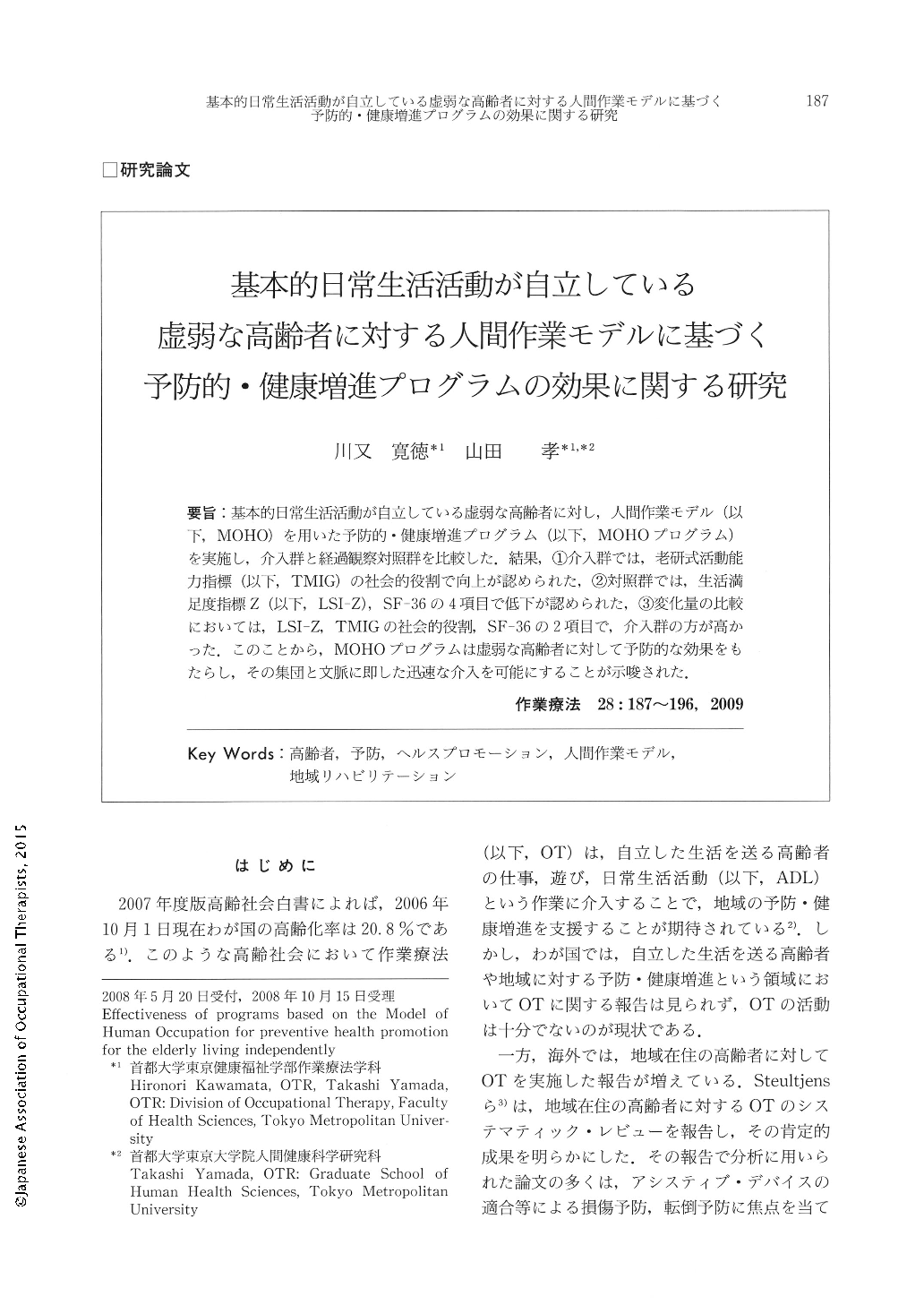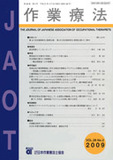Japanese
English
- 販売していません
- Abstract 文献概要
- 1ページ目 Look Inside
- 参考文献 Reference
- サイト内被引用 Cited by
要旨:基本的日常生活活動が自立している虚弱な高齢者に対し,人間作業モデル(以下,MOHO)を用いた予防的・健康増進プログラム(以下,MOHOプログラム)を実施し,介入群と経過観察対照群を比較した.結果,①介入群では,老研式活動能力指標(以下,TMIG)の社会的役割で向上が認められた,②対照群では,生活満足度指標Z(以下,LSI-Z),SF-36の4項目で低下が認められた,③変化量の比較においては,LSI-Z,TMIGの社会的役割,SF-36の2項目で,介入群の方が高かった.このことから,MOHOプログラムは虚弱な高齢者に対して予防的な効果をもたらし,その集団と文脈に即した迅速な介入を可能にすることが示唆された.
This study aimed at clarifying participants' needs, and addressed the effectiveness of programs based on the Model of Human Occupation (MOHO) for the frail elderly living independently. The participants in the study were made up of 10 people in an intervention group and 7 in a control group. The two groups were compared using standardized scores such as LSI-Z, TMIG and SF-36. As a result, 1) the scores of social role items in the TMIG increased in the intervention group, 2) the scores of LSIZ and 4 items in the SF-36 declined in the control group and 3) the scores' improvement of LSI-Z, social role items in the TMIG and 2 items in the SF-36 in the intervention group surpassed those scores in the control group. It is suggested that the programs based on the MOHO in this study prevented deterioration of health status in the intervention group and enabled therapists to intervene swiftly and appropriately with the target group and context. Further research is required considering the limitations of this study.

Copyright © 2009, Japanese Association of Occupational Therapists. All rights reserved.


